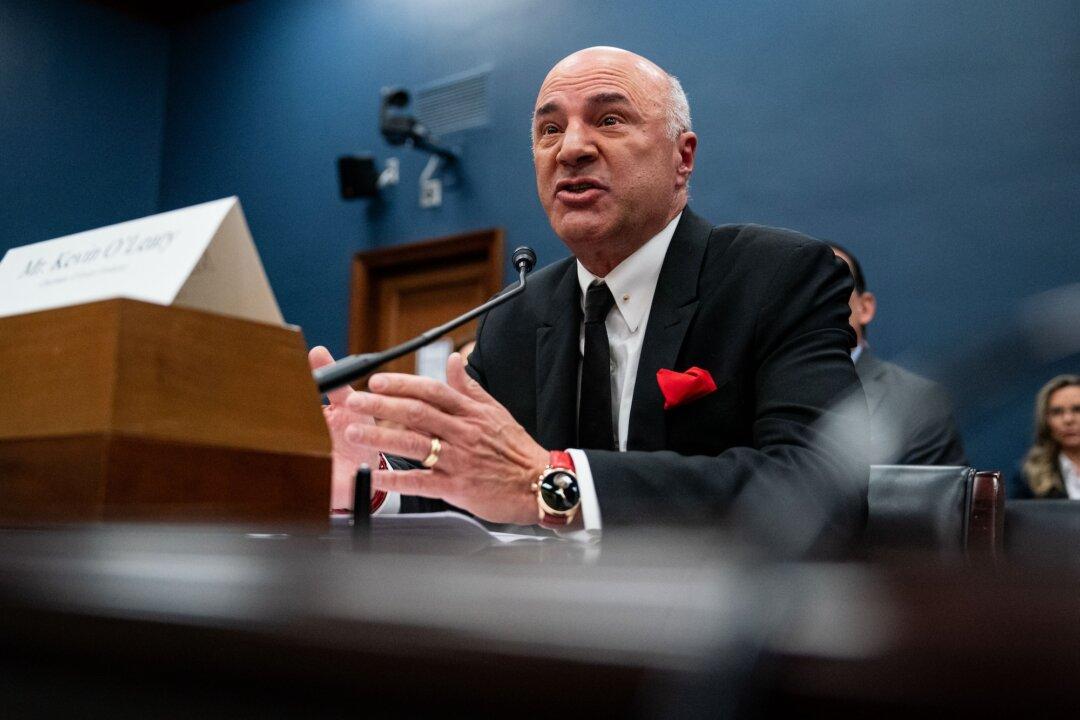Former President Donald Trump had words of praise for entrepreneur and media personality Kevin O'Leary for denouncing a New York judge’s decision to fine the former president hundreds of millions of dollars and slap him with a temporary business ban.
New York Supreme Court Justice Arthur Engoron issued a ruling on Feb. 16 in a civil fraud trial, ordering President Trump and Trump Organization executives to pay $355 million in damages, and barring the former president from doing business in the state for three years.





